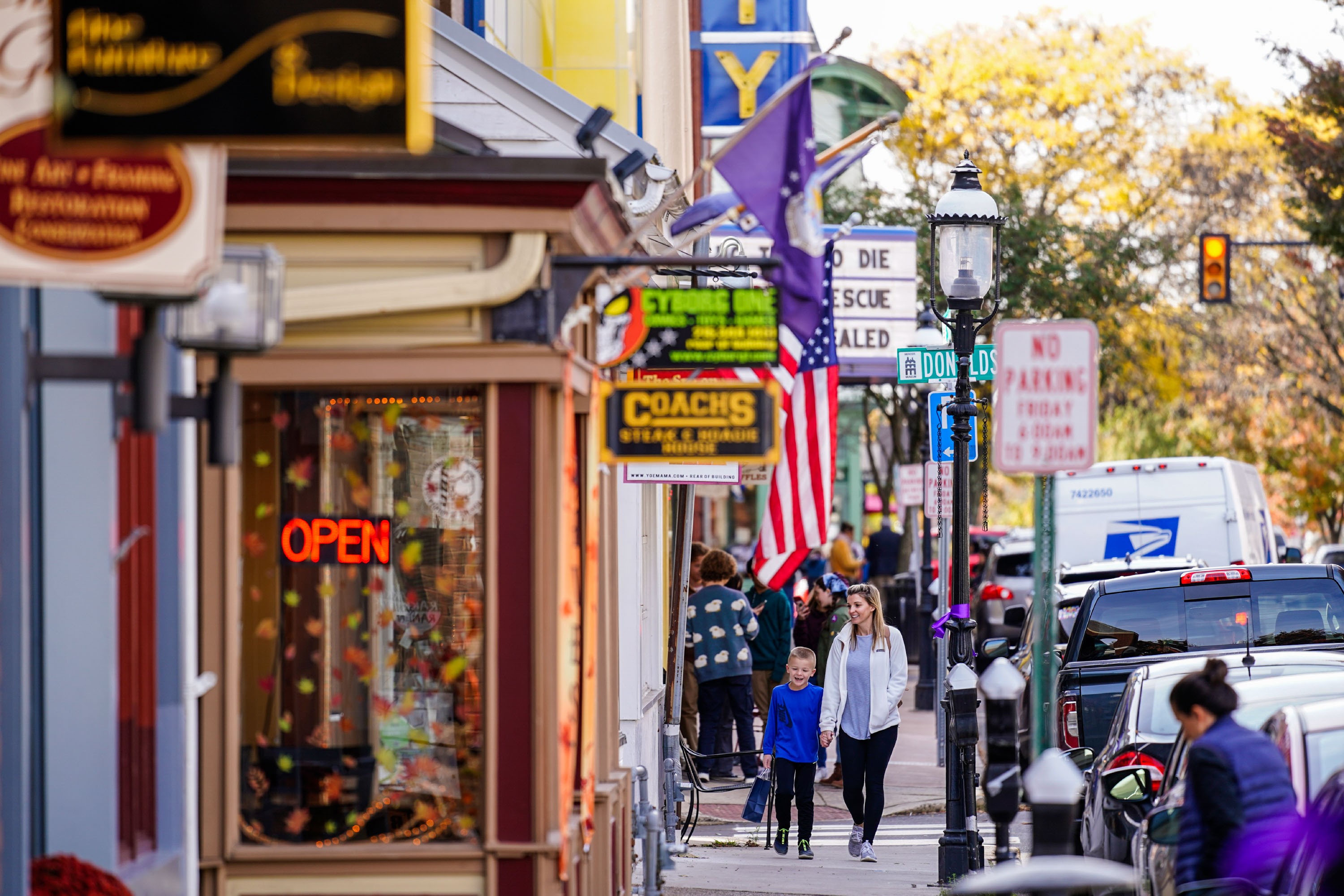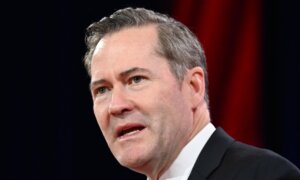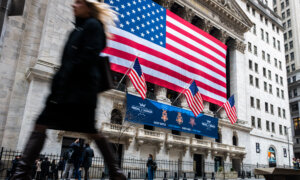U.S. consumers grew more upbeat in November on increased optimism around job availability, easing inflation expectations, and reduced recession fears, according to the latest report from The Conference Board.
The group’s consumer confidence index rose to 111.7 in November, up from 109.6 in October, marking the second consecutive month of improvement, according to the Nov. 26 report.
The present situation index, which gauges consumers’ views of current business and labor market conditions, climbed 4.8 points to 140.9. Meanwhile, the expectations index, which reflects outlooks over the next six months on income, business, and labor conditions, inched up 0.4 points to 92.3, remaining well above the threshold of 80 that is typically associated with recession risks.
“The proportion of consumers anticipating a recession over the next 12 months fell further in November and was the lowest since we first asked the question in July 2022,” Dana Peterson, chief economist at The Conference Board, said in a statement.
Peterson said that November’s increase in overall consumer confidence was mostly due to more positive assessments of current conditions, particularly with respect to the labor market.
“Compared to October, consumers were also substantially more optimistic about future job availability, which reached its highest level in almost three years,” Peterson said.
Even though consumers’ assessments of their family’s current financial situation fell slightly, optimism for their finances over the next six months reached a new high. Confidence in the U.S. stock market also reached a record high, with 56.4 percent of respondents expecting stock prices to increase over the next 12 months.
Inflation expectations also fell sharply. The average 12-month inflation expectations fell from 5.3 percent in October to 4.9 percent in November, the lowest in nearly four-and-a-half years. Still, elevated prices remained the top concern for consumers, followed by worries about higher taxes, social unrest, as well as conflicts and wars.
“In a special question about concerns and hopes for 2025, consumers overwhelmingly selected higher prices as their top concern and lower prices as their top wish for the new year,” the report states.
Despite the rise in optimism, consumers reported mixed plans for future purchases. Buying intentions for homes stalling in November, while plans to purchase autos ticked up. Durable goods purchases faced uncertainty, with declines in plans for appliances and electronics, offset by steady interest in travel and healthcare spending.
Other data released on Tuesday suggests Americans are tightening their purse strings. Best Buy, the nation’s biggest consumer electronics chain, reported another quarterly sales drop as customers pivoted toward essentials, away from gadgets and appliances. The retailer also lowered its annual sales and profit outlook, with CEO Corie Barry noting weak customer demand ahead of the November election and shoppers who were waiting for bargains.
“We continue to see a consumer who is seeking value and sales events, and one who is also willing to spend on high price-point products when they need to or when there is new, compelling technology,“ Barry said in a statement. ”Thus, we are balancing our optimism in both the industry and our unique positioning with a pragmatic approach to likely uneven customer behavior going forward.”
Similarly, Kohl’s reported disappointing third-quarter results and lowered its full-year sales outlook. The retailer now expects comparable sales to decline 6 percent to 7 percent for the year, a deeper slump than the 3 percent to 5 percent it previously projected.
“Our third quarter results did not meet our expectations as sales remained soft in our apparel and footwear businesses,“ CEO Tom Kingsbury said in a statement. ”We are approaching our financial outlook for the year more conservatively given the third quarter underperformance and our expectation for a highly competitive holiday season.”
Target also reported weak sales and slumping profits as customers pulled back on non-essential purchases. CEO Brian Cornell said the company “encountered some unique challenges and cost pressures that impacted our bottom-line performance” in the third quarter, although he expressed confidence in Target’s business fundamentals and its ability to deliver on longer-term financial goals.
The picture wasn’t universally grim among the nation’s retailers during this reporting season, however. Walmart, the nation’s largest retailer, last week reported a solid third quarter and raised its full-year net sales growth guidance to between 4.8 and 5.1 percent.
“We had a strong quarter, continuing our momentum,” CEO Doug McMillon said in a statement. “In-store volumes grow, pickup from store grew faster, and delivery from store grew even faster than that.”
Alongside the rise in consumer confidence, as reported by The Conference Board, there was also an uptick in sentiment among professional economic forecasters this week. The latest National Association for Business Economics (NABE) survey showed that economists have raised their growth projections substantially for 2025 and most of them no longer see downside risks as predominant.
NABE’s periodic survey, released on Nov. 25 and based on the responses of 38 professional forecasters, found improved economic growth projections for both this year and the next, while expecting inflation to cool further.














